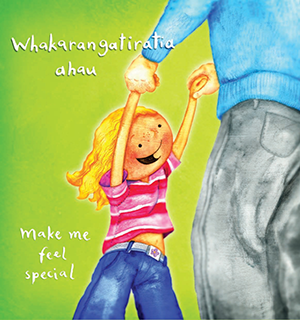
Understanding early development
Babies change rapidly in the early stages of life. This can be a difficult time for parents and support is very important.
At this early stage of baby’s life, brain growth and development is rapid. In the ‘Pēpi says’ sections of the Whakatipu booklets, baby gives a picture of their growth, development and behaviour.
Realistic expectations
It’s very helpful for parents to have realistic expectations of their baby’s development and capabilities. Not just in these early days, but right through childhood. Knowing what to expect of their child, and how to be appropriately supportive and caring, is the key to a happy child and happy parents.
Supporting whānau
A skilled and experienced whānau worker is sensitive to:
- how emotionally involved parents are with their baby
- what they know about their child’s development already
- what else might help them better understand baby’s behaviour.
Encourage parents to talk about baby by asking open-ended questions and really listening to the answers.
Use further questions to clarify and explore the topic.
Reflect back what you’ve heard by summarising what parents have shared.
Ask the whānau:
- How do you feel your baby is doing?
- How has baby changed since birth?
- Can you tell me more about that?
- Is there anything about baby’s progress that you particularly enjoy or are worried about?
Value and encourage positive awareness and accurate knowledge.
- What have you learnt about your baby so far?
- How would you describe your baby’s personality?
When caring for baby is difficult
It can be very hard to be with a baby constantly, especially if they are upset or difficult to comfort and settle.
- What sort of relationship do you think you have with baby?
- What has it been like looking after your baby?
- How is feeding going?
- What have you and your baby learnt about feeding so far?
- How is baby sleeping?
- What have you noticed about their sleep?
- What do you do if you can’t settle baby?











